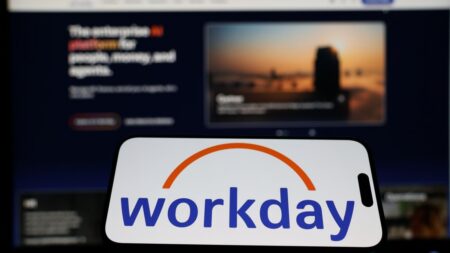
Building on the considerable momentum behind the Agent2Agent (A2A) AI communications protocol, and anticipating the inevitable day when agents will execute financial transactions autonomously, Google last week issued a protocol to securely govern AI-driven payments.
The Agent Payments Protocol (AP2) launched with more than 60 financial and business brand names — including American Express, Mastercard, Coinbase, Paypal, and Etsy — pledging support.
As just one powerful example of how AP2 could be applied, Google laid out the following scenario of agents communicating with each other and ultimately completing a transaction.
Specifically, a user could ask an agent to book travel — flight and hotel — for a specific location, dates, and budget. Their agent can then engage with airline and hotel agents, as well as required booking platforms. Once the agents have identified a package that meets the user’s requirements, the user’s agent simultaneously executes multiple secure transactions.
While such a scenario would have sounded like science fiction 12 to 18 months ago, Google and its partners are putting in place the underlying functionality and controls to deliver on use cases like this one. Just consider how rapidly the vendor community has delivered A2A- and Model Context Protocol (MCP)-compliant software in response to those two emerging standards. MCP is a standard way for agents to interact with a variety of back-end systems.
Why It’s Needed, How It Works
Agents are capable of executing transactions on behalf of users, which nullifies the existing assumption that a human is initiating an online purchase. AP2 is designed to prove a transaction is authorized, ensure the transaction reflects a user’s actual intent, and assign accountability if a fraudulent or incorrect transaction takes place.
AP2 provides a common language for secure transactions between agents and merchants while supporting different payment types–from credit and debit cards to stablecoins and real-time bank transfers. This helps ensure a secure and scalable experience for users and merchants, while also enabling financial institutions to manage risk.
AP2 builds trust by using “Mandates” — which are tamper-proof, cryptographically protected digital contracts providing proof of a user’s instructions along with verifiable credentials; they serve as the foundational element of any transaction.
Mandates address two primary ways a user will shop with an agent: real-time purchases (with a human present) and delegated tasks (without a human present).
In a real-time scenario, after an agent presents a cart with items a human has requested, the agent signs a Cart Mandate, creating a secure record of the specific item and price that can’t be changed.
In a delegated-task scenario, the user signs an Intent Mandate upfront detailing price limits, timing, and other criteria that create verifiable proof the agent can automatically generate a Card Mandate once the conditions have been met. An example of a delegated task scenario is buying concert tickets at the exact time they go on sale, at the user’s specific price limits.

AI Agent & Copilot Summit is an AI-first event to define opportunities, impact, and outcomes with Microsoft Copilot and agents. Building on its 2025 success, the 2026 event takes place March 17-19 in San Diego. Get more details.
Building Chain of Evidence, Audit Trail
The resulting chain of evidence securely links the user’s payment method to the verified contents of the Cart Mandate. This full sequence — intent, cart, payment — creates an audit trail that can’t be repudiated and a foundation for accountability.
AP2 is intended to support a variety of payments including stablecoins and cryptocurrencies. To that end, the protocol includes an extension for crypto payments.
Many of the partners building A2A agents have extended their support to AP2. This growing ecosystem will continue to make agents available in Google’s AI Agent Marketplace.
Google pledged to work with standards bodies and issued an open invitation to payment and technology firms to join the effort. Key software providers that also pledged support include Servicenow and Salesforce –— underscoring the power and potential of this protocol to provide secure, agent-based transactions, and push agentic AI much deeper into businesses.
Enterprise companies could use AP2 for B2B applications, such as automatic acquisition and scaling of software licenses based upon real-time needs, Google said.
Closing Thoughts
AP2 is another important advance in the remarkable set of AI and agent innovations that have taken place in 2025. As a means to drive greater cross-company communications and secure financial transactions by both consumers and enterprises, its potential impact is among the greatest yet in standards specifications that could rapidly accelerate the use of agents across the global economy. Consequently, I expect to see a wide range of vendors with a role in the online payments ecosystem embrace AP2 in the near future.
Ask Cloud Wars AI Agent about this analysis










